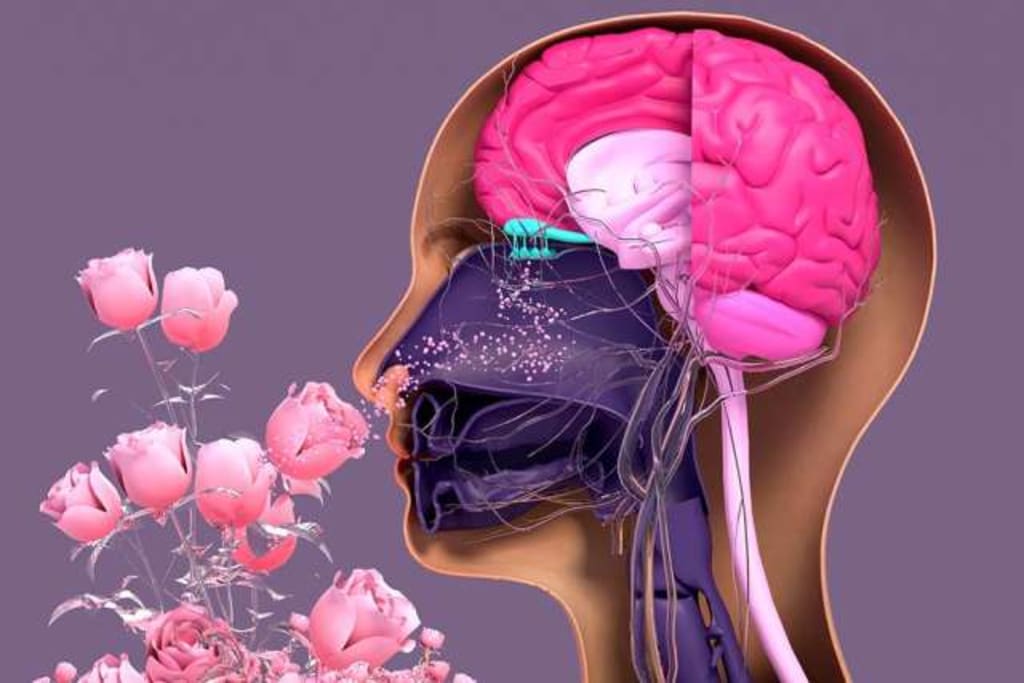Ear and Nose Specialist: These are the reasons why you lose your sense of smell
Otorhinolaryngologist Dr. Vladislav Moshchenko announced that food poisoning, nasal polyps and brain diseases can cause disorder and loss of the sense of smell.

In an interview with the "Izvestia" newspaper, the doctor points out that the sense of smell is characterized by the ability to capture and identify substances from its smell in the air. and that its primary function is protection, and in addition, the sensations of taste can only be explained and appreciated by the sense of smell. According to some estimates, a person with anosmia can only recognize 20 percent of the taste of things.
He says, "There are many factors that can cause a sense of smell disorder: sinusitis, infectious diseases and their consequences, allergies, nerve diseases, the effect of toxic substances, poisoning, nasal polyps, injuries and surgical intervention, congenital anomalies, brain diseases, and others."
According to him, in a number of cases it is not possible to determine the cause of the loss of the sense of smell. As for children, they may lose their sense of smell at an early age for several reasons: congenital anomalies in the development of the nasal cavity, the head, the presence of infections in these areas, and even anosmia .
And he adds: He treats the loss of the sense of smell using medicines and drugs and training the sense of smell (training on smells using different aromatic materials). Sometimes, in certain cases, it is treated with surgical intervention.
He says, "The method of treatment must be agreed upon with the specialist doctor. Because the effectiveness of treatment and the possibility of restoring the sense of smell depends a lot on the nature of the disease and the factors causing it. The olfactory epithelium is characterized by a high ability to recover, which always gives hope for the restoration of the sense of smell."
In Germany, 180,000 drivers were caught using their mobile phones while driving
The Dutch police said today, Monday, that about 180,000 Dutch people will be caught using their mobile phones while driving their cars in 2022.
Traffic police officer Paul Brewer said, "This behavior not only puts you in danger, but also endangers the lives of others."
Brewer added that the increase in the number of fines issued is mainly due to the installation of cameras on bridges in mid-2021, which are used automatically to record drivers who carry their mobile phones.
Anyone caught talking on a mobile phone while driving their car or motorbike will be fined 380 euros ($418).
The total number of cyclists caught using their mobile phones was about 53,000 last year.
8 things in the house that negatively affect the lungs and heart
Amir Khan points out that there are eight household items that negatively affect the condition of the heart and lungs. According to him, these items are in addition to (incense), air fresheners, deodorants, aerosols, hair sprays, cleaning powders, and degreasers in the kitchen and bathroom.
He says: "These preparations contain volatile organic substances that irritate the respiratory system and can cause nausea, dizziness, and damage to nerves and other body parts."
The doctor stresses the necessity of having as many plants as possible in the rooms of the house.
He says: "These plants purify the air and relax the eyes. It is necessary to ventilate the house periodically and well."
Do the microbes inside us influence our behaviour?
We've known for nearly 200 years that trillions of microbes live on our skin, as well as deep inside our bodies, in our gut. Until recently, we thought they were just parasites that took advantage of our bodies for food and shelter, and that they didn't cause us any problems. However, we now know that the genes of our microbiome make many chemicals that affect our bodies and may predispose us to heart disease, diabetes, obesity, depression, anxiety, and many neurodegenerative diseases.
Recent studies indicate that the microbes inside us may also influence our behavior. A study published online on December 14, 2022 in the journal Nature compared mice that exercised when given a running wheel, and other mice that exercised. Did not perform the exercise.
There were no differences in her genes, only differences in her gut microbiome. It turned out that the mice that exercised had more bacteria that produced a certain chemical, so the more these mice ran, the chemical sent signals from the gut to the brain and ignited the reward centers in the brain, bringing the mice to what is called the “runner’s trance” stage in which His zeal for more ignites the enemy.
On the other hand, because of the different microbiomes, the "lazy" mice did not get such a reward and just watched. But when the exercise microbiome was put into the lazy mice, those mice began to exercise.
If the gut microbiome can influence an animal's drive to exercise, can the same apply to humans? If this is true, could the microbes in our bodies also influence our drive to do other things like use or avoid addictive substances, eat healthier foods, or become more social?
Let's look at another microbe inside our bodies. When different animals are infected with a parasite called Toxoplasma gondii (which is common in cats), they are more likely to behave dangerously. For example, parasitic gray wolves found in Yellowstone National Park are much more likely than uninfected wolves to act independently of the rest of the pack or attempt to dominate the pack — or die in the process. This same courageous behavior (lack of fear) appears in other animal species infected with this parasite. Mice infected with the parasite, for example, try more than others not to avoid cats.
Approximately 30 percent of humans are also infected with this same parasite. Could this parasite affect us in the same way it affects other animals, turning us into fearless risk-takers? Studies have concluded that business school students infected with this parasite are more likely to aspire to be entrepreneurs (rather than accountants, for example), and infected professionals who attend entrepreneur events are more likely to start their own businesses.
So, although the idea is still far from proven, it is possible that the microbes inside us can influence not only our risk of various diseases, but our behavior as well. Scientists now even consider it conceivable that the microbes inside us might influence aspects such as intelligence, attitude, empathy, and who we are drawn to—in short, who we are.
About the Creator
News Correct
Information WorldWide MORE INFORMATION






Comments
There are no comments for this story
Be the first to respond and start the conversation.